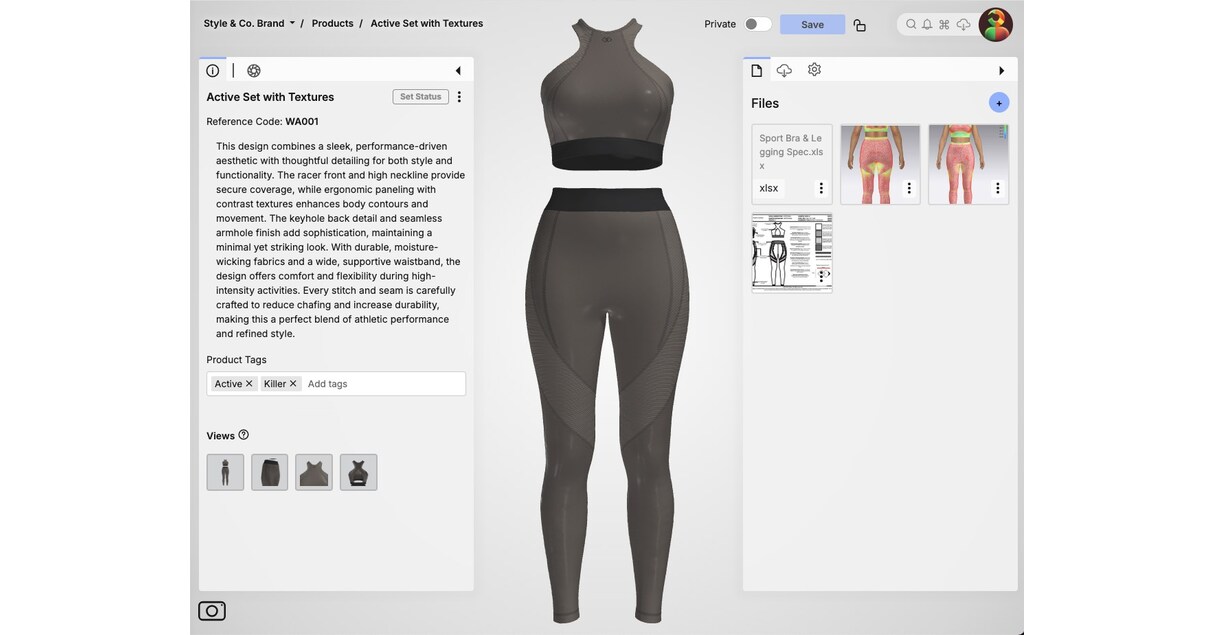Sports
Sports broadcaster Jake Kemp on getting sober — and going public

There were nights when Jake Kemp lay awake in bed, the same sentences on loop in his brain, like a station whose dial refused to budge.
You have to stop.
He stared at the ceiling.
But you can’t stop.
Kemp and his wife, Kristin, had two children at their home in Grapevine. At 39, he’d had a charmed broadcasting career. He’d risen through the ranks at The Ticket, the juggernaut of a sports radio station that makes local celebrities of its on-air talent, and for years he’d co-hosted a show with Dan McDowell, the two boasting a chemistry so airtight that they successfully transitioned their show off terrestrial radio to a subscription-model podcast, where they were their own bosses. The intentionally ridiculous name, The Dumb Zone, had not kept thousands from becoming loyal listeners.
So things were good, but things were bad, because Kemp had been hiding bottles in his car for months. He’d been slipping out of the house at night after the family went to bed. When his wife asked if he’d been drinking, he lied. The hiding was the red flag for him; well, it was one, anyway.
The push-pull inside his brain went on for hours. The voices were loud — you have to stop, but you can’t stop — though every once in a while, he heard a smaller voice.
Maybe you can.
Sports and booze
Kemp started drinking in college for the same reason most people do: It was fun. He spent freshman year at the University of Texas at Arlington, the same year he scored an internship at The Ticket, the local sports station he’d been listening to since he was a kid in the car with his dad.
He loved the theater of talk radio, the playful banter, the clash of ideas and opinions. The Ticket also brought unusual access. At 18, he hung out in the bars of Lower Greenville on St. Patrick’s Day with some of the older hosts, heroes to him who were also becoming friends. The internship was unpaid, but away from the watch of management, some of the guys would slip him free promo cases sent in by brands like Guinness and Red Stripe. The joke was that they paid him in beer.
Sports and booze have long been entwined. The tradition of cracking open a cold one for the Sunday game, the ads that tie alcohol and sports to the better life, two escapes that taste great together. What’s striking about Kemp’s early 20s, though, is less how much he was drinking, and more how much he was hustling. After finishing his undergrad at Texas State in San Marcos, he moved back to the Dallas area, where he got a master’s in journalism at the University of North Texas while working weekends at The Ticket and holding down a full-time job.
The push paid off. He became a fixture on the station, with a Sunday morning show starting in 2012 and, two years later, a producing gig on weekdays with BaD Radio, where he jawed with hosts McDowell and Bob Sturm. He was a natural on air, with a commanding voice, a quick wit, a way of deploying tangents that made filling up hours of airtime seem easy.
I first got to know Kemp as a listener to the station in those years. Much later, he’d become a friend, especially after I began to make regular appearances on The Dumb Zone. But back then, he was only a character on the radio, and it was around 2018 that I heard him tell a story about (to my memory) getting so drunk he’d locked himself out of his house and slept outside. The story snagged my attention, because it sounded similar to things I’d done in my early 30s, before I quit drinking at 35.
I recently tried to pin down this memory with Kemp, but he wasn’t sure which story I was talking about.
“Yeaaah,” he says, rubbing his forehead. “There’s more of those than to be an isolated incident.”
The Ticket thrives on “wheels-off” moments, one of the many turns of phrase that has trickled down into the local vernacular, and it can be hard for a listener to tell what part of these bits are comic hyperbole, what part potential problem. The slide from just-having-fun to danger territory can be hard to track, especially for the person inside the pivot.
‘Anxious and worried’
Kemp can’t put a pin on a timeline to say when things got bad. Five years ago? Seven? “At first it’s like, I gotta cut back.” So he did, and that assuaged any fear he had. But the drinking ramped up again. Anyone who’s found themselves wrapped around the axle of alcohol abuse knows this routine. For Kemp, it lagged on for years. “The problem periods would last longer, the healthy periods would contract.”

He’d gotten married in 2014. “She made me laugh, and she laughed at me,” Kemp says of Kristin. They had a daughter in 2019, a joyous time that also brought new stress. The way he was drinking started to change — less social, more self-medicating.
“For as long as I can remember, I’ve been an anxious person,” he says. “Anxious and worried.” This wasn’t an issue on-air, where he never felt nervous, but it was off-air, where overthinking could get the better of him. Alcohol is one of the great anti-anxiety drugs, a glorious disinhibitor, but it creates new anxieties. You drink to mask problems and wind up creating new ones.
In 2020 Kemp landed his own weekday show with McDowell, a month before the pandemic hit. The pandemic did no favors to anyone struggling to get ahold of their drinking; we’re still shaking out the collateral damage. The dynamic with McDowell was effortless, but away from the mic, the next years brought stress around fertility treatments, which Kemp spoke about on-air, and the arrival of a son, who required a skull surgery a few months after he was born.
“I could put together these strings of sobriety, but major negative events would waylay me,” he says. “That surgery sent me sideways.”
He started going to an outpatient treatment center in Southlake. He did this privately; he was too embarrassed to let anyone else know, although he was struck by how the room filled with high achievers. Doctors, pilots, software executives. The discipline of the program, including regular urine tests, kept him from drinking, but in his mind, this was a temporary fix. He’d learn coping skills, and go back to his regular life.
This stretch of sobriety coincides with Kemp and McDowell’s decision in July 2023 to leave The Ticket and launch their podcast. The unconventional move brought media scrutiny and internet speculation, but Kemp felt certain he was doing the right thing, in part because his head was so clear. “I don’t think I ever would have had that confidence if I’d been in an active addiction,” he says.
Two things happened to break his stride. After getting a couple emails from listeners who’d seen him at outpatient, he was shaken. He didn’t want news of his drinking problem bubbling up on Reddit and other social media sites. He quit going to outpatient, and not long after that, a doozy hit. He and McDowell got sued by Cumulus Media, owner of The Ticket.
“You have no way of knowing what that’s going to be like until you go through it,” he says. “It was the worst experience of my life.”

The lawsuit between Cumulus Media and The Dumb Zone has been well-covered in the media and since settled, but it’s a crucial point in Kemp’s story, because it’s when the drinking got bad again. A few drinks became several, a couple days a week became five. Looking back on pictures from the past year, Kemp can see the puffy eyes, the exhaustion on his face. Blood work confirmed the strain on his system, elevated liver enzymes and high cholesterol.
People often demand numbers from other people’s drinking stories. Is five a day too many? What about 10? The number is less important than the feeling you’ve lost control. You want to stop; you can’t stop. Kemp tried moderation management. He tried medication. He lay awake nights caught in a tortured spin cycle, swearing he’d quit.
“And then I’d wake up the next day and be like, I just need to get through the afternoon. I’m gonna stop by the store and get something to drink.”
It was his wife who suggested rehab. Kristin Kemp is sweet-natured, quick to laugh, but she is direct. An executive who works in international supply chains, she gets things done. She found a treatment center in the southern part of the Hill Country, an old hunting lodge on thousands of acres. Leaving home for an undetermined span of time sounded awful to Kemp. So did staying put.
Rehab would mean going public — not only to his broadcasting partner McDowell and his producer Blake Jones, but also to thousands of listeners and beyond. Technically, he could have floated a cover story to the audience, but he never considered it.
“The hiding and the secrecy and the lying were done,” he says.
The decision was made easier by the self-employed nature of their job and the support of Jones and McDowell, who knew something was going on, but weren’t sure what.
“When I found out, it was like the end of The Sixth Sense,” says McDowell. “A lot of things came together.”
‘No turning back’
Rehab can call to mind cliffside Malibu sunsets and yoga on the beach, but this was not that kind of place. It was a different scene from the Southlake doctors and software engineers of the outpatient facility. A lot of people had felonies. Kemp had two roommates, both out cold when he arrived, detoxing on medication.
He arrived Sept. 11, and for the first two nights, he didn’t sleep. “I just remember thinking, there’s no turning back from this. Either you will get a divorce, you will lose your family, you will probably, at some point, die or hurt someone else — or you’ll have something to be proud of.”
It took about three days to go all-in. Then it became a 16-hour-a-day boot camp to get his act together, to confront the problems leading him to drink. He started working out again, journaled like crazy. He didn’t have his phone, so he couldn’t connect with his wife and kids outside supervised calls.
The second FaceTime call was when Kristin noticed the difference. His skin was clear, his eyes were bright, like a light had flipped inside him. “He was like the person I met 14 years ago,” she says.
“This is the best I’ve felt in my adult life,” he told her.
Back in Dallas, McDowell kept the show going with a guest host, mostly former Ticket producer Danny Balis. Kemp’s absence was never explained. As one week passed to two, the podcast’s Reddit board lit up with speculation. Did something happen to him? His family? I texted McDowell during this stretch of time, surely one of dozens of people to do so. He never responded.
McDowell is a master of artful dodges and redirects; it’s part of his job as a broadcaster. When I asked him if he felt guilty not leveling with people, he said no, that was Kemp’s business. He added a joke, even though he played it straight: “Maybe he is hiding something, and it’s even worse than going to rehab. I’d like to plant that in everyone’s mind right now.”
I could only laugh. McDowell has a good heart, just don’t ask him to be serious for too long.
The part he didn’t predict
Kemp returned to the air on Oct. 7. The segment began abruptly, almost in mid-sentence.
“And also yesterday, I checked out of rehab,” he said and let out a hearty laugh.
“Oh, that’s where you were?” McDowell deadpanned.
It’s hard to find regular dudes talking about alcohol problems, even though they make up a good chunk of the drinking demographic. Memoirs and self-help books about quitting drinking have exploded over the past decade, but most are written by women (including one by me). Whether it’s the fear of looking weak, or a fear of opening up, men seem less comfortable admitting they have a problem. But when they do, it gives other men permission to do the same.
“The part I didn’t predict about this was the number of people who say, hey, listening to you talk about this so openly made me take a look at my own drinking,” says Kemp. Easily 10 people have told him they decided to go to rehab. The day before we spoke in early November, a guy had texted him, “I start tomorrow.”
Kemp has no interest in making his sobriety the tent pole of his identity (he was gracious enough to do this story, but reluctant). He has more pressing topics to discuss: The flame-out of the Cowboys, whether Jason Kidd is a good head coach, the absurdity of the term “girl dad.” But telling listeners what he went through normalizes the experience. So does humor.
“You have a lot of complaints today,” Kemp said to McDowell on-air recently.
“I guess some of us could use a month away!” McDowell shot back, to much laughter.

Kemp knows he is new to this. “I’m not having a hard time right now, but I know it will be hard,” he says. “The one thing I can offer anybody is just the idea that it’s worth it.”
In the late afternoons, Kemp has been helping his 2-year-old son learn to ride a pedal-less balance bike. His son pushes his feet on the ground, wobbles along the pavement. The other day Kemp let out a laugh so pure it almost startled him. “Even my laugh sounds different,” he thought. “This is what people mean when they say they found a calm or a peace or the ability to feel real joy.”
Happy endings are the stuff of fairy tales. But if we’re lucky, we might be happy right now.









